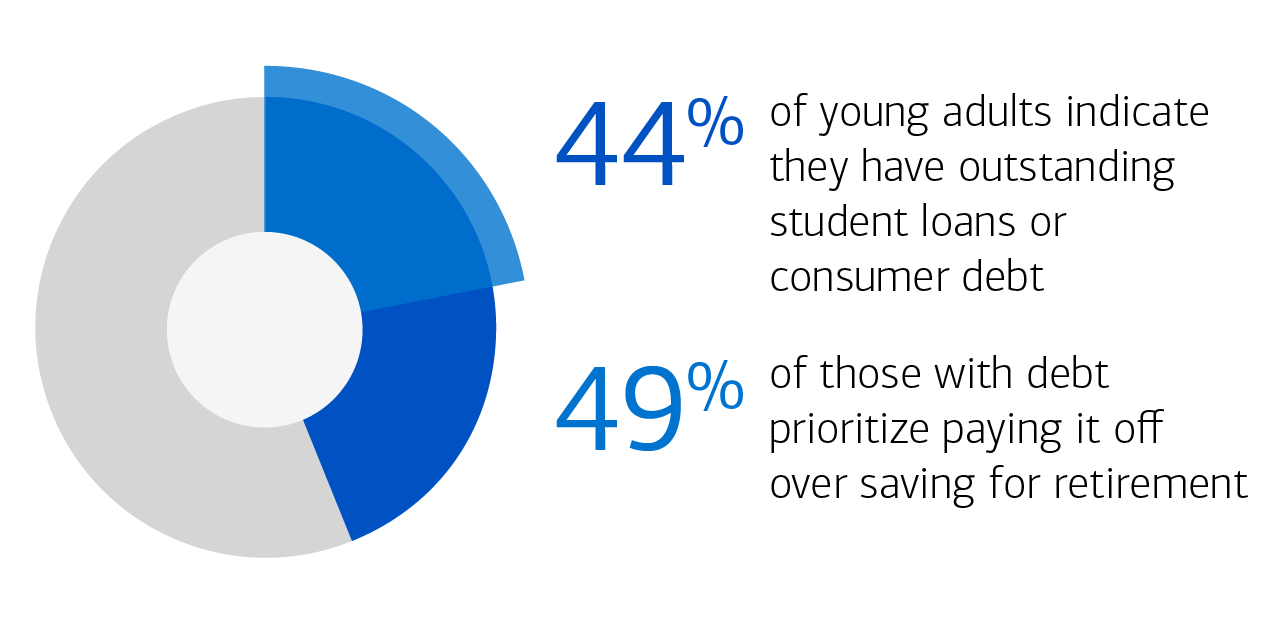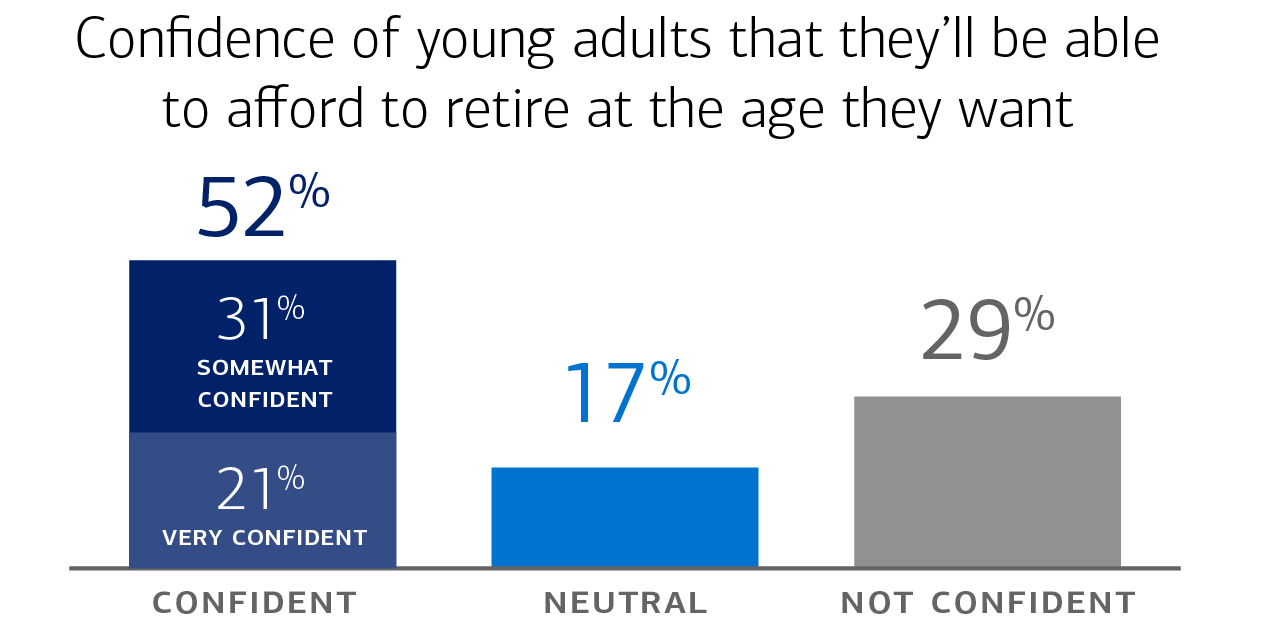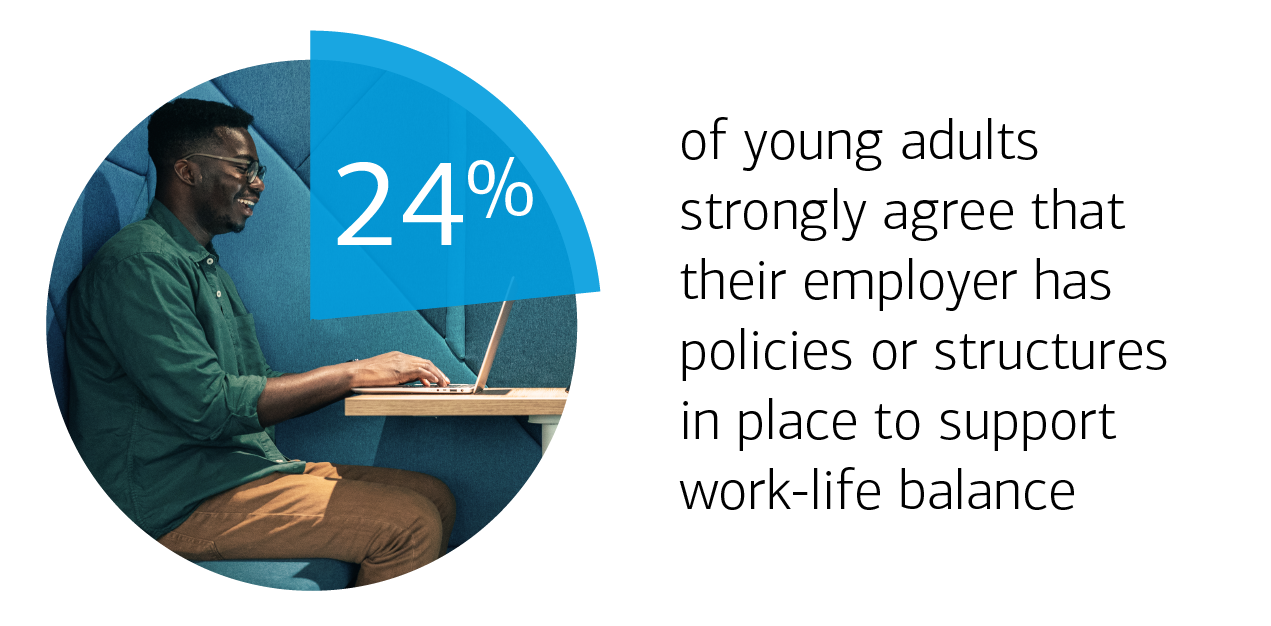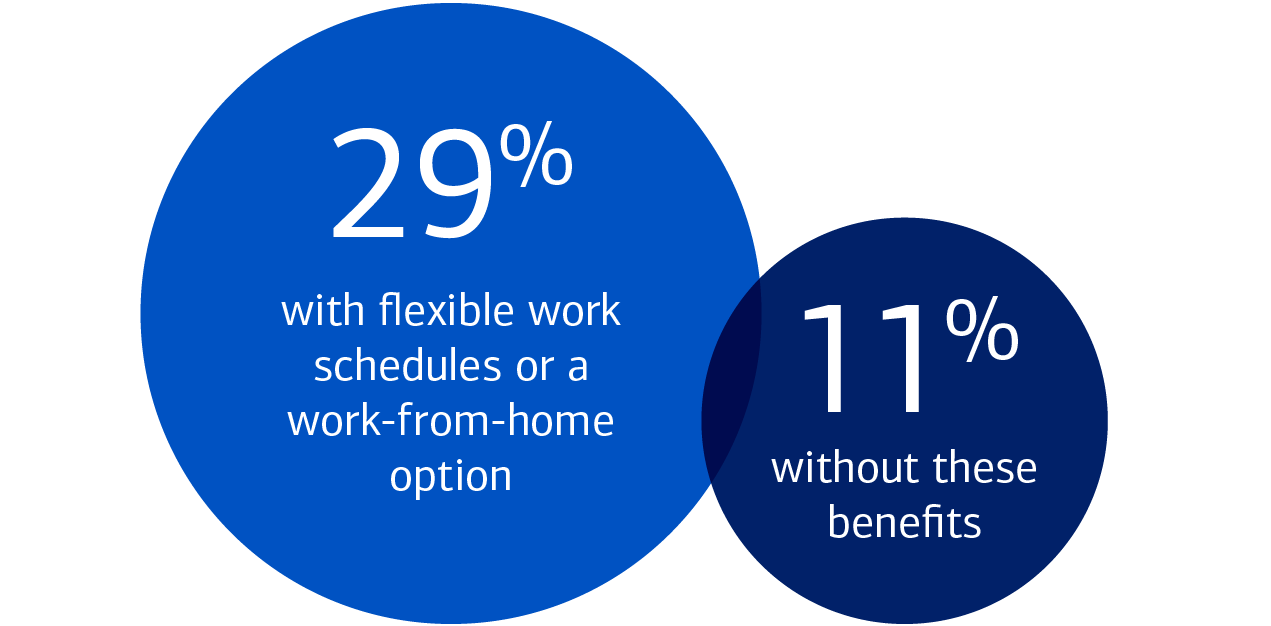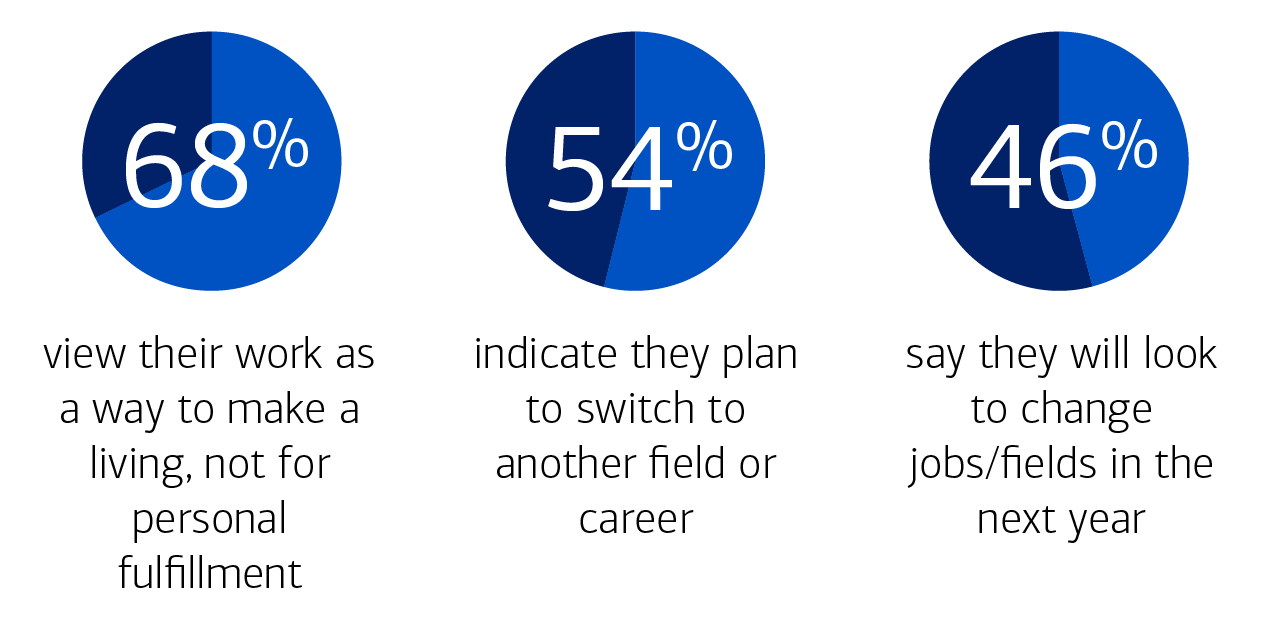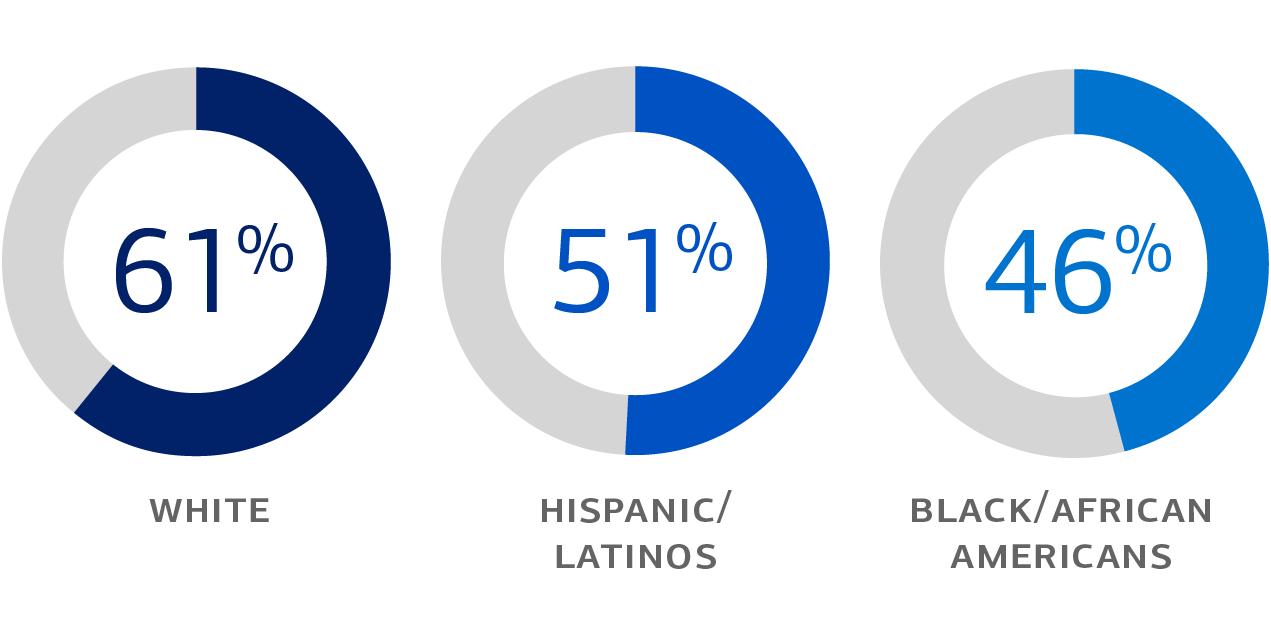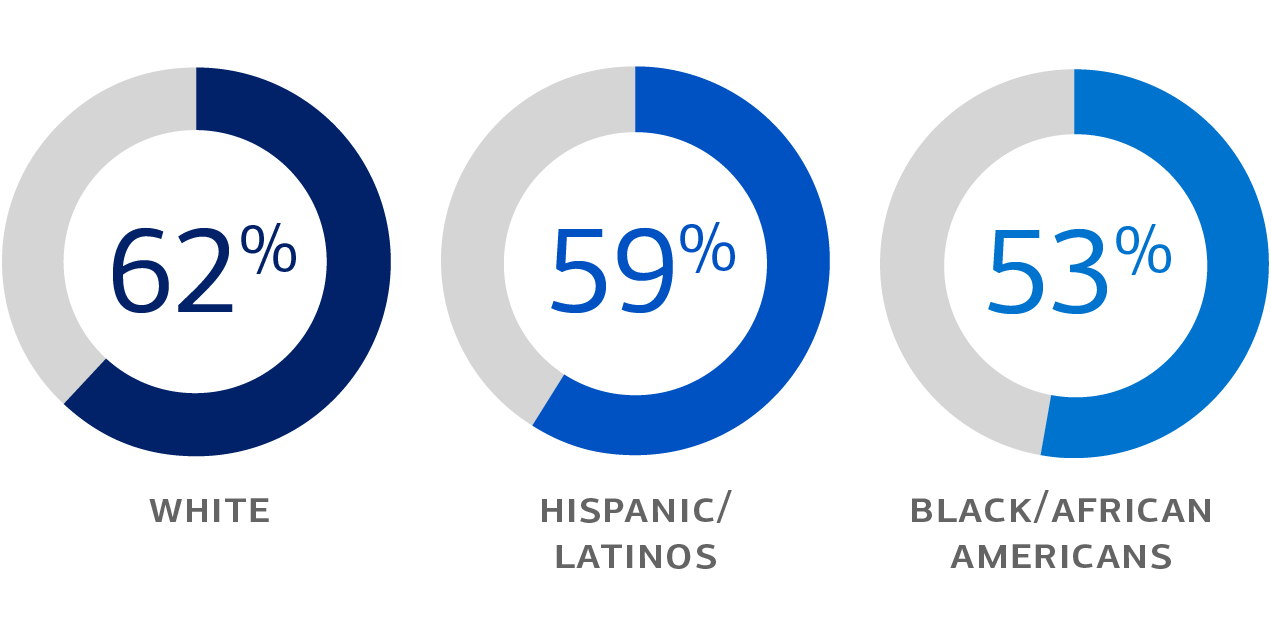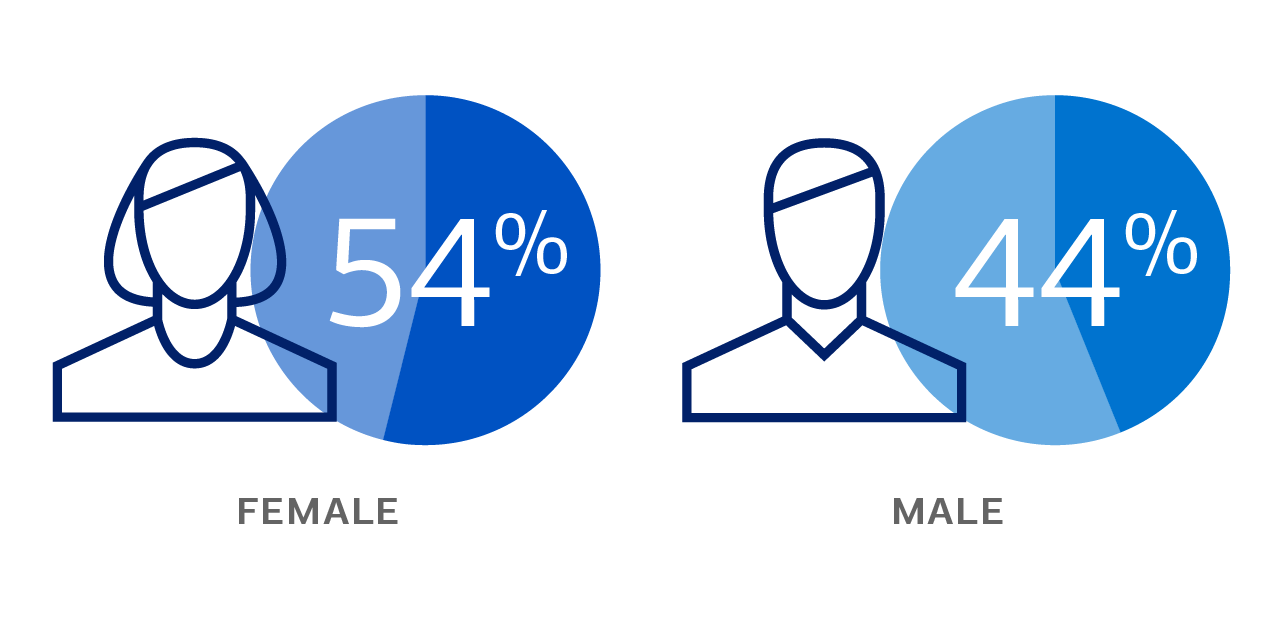August 2023
Young adults are driving new expectations of workplace benefits
Millennials and Gen Z say paid time off and a flexible work schedule are among the top benefits influencing their choice of where they work, according to new research conducted by Georgetown University in partnership with Bank of America. The study also indicates that these benefits, in addition to health insurance and retirement plans, can factor into young adults’ decisions to stay with their current employer or move to a new job.
In the post-pandemic workplace—with hybrid work environments and a heightened desire for greater work-life balance—companies need to act quickly to promote benefits that support overall employee well-being if they want to attract and retain young adult workers and remain an employer of choice.”
Highlights from the research
The research, Young adults and workplace wellness, examines attitudes and priorities of 1,032 Gen Z and younger Millennial workers (ages 24-35). Additional findings include:
Key takeaways
- Download the Young adults and workplace wellness report and talk with your Bank of America representative about strategies to help enhance employee engagement to help them get the most out of the benefits you offer.
- Consider providing a menu of benefits from which employees can choose; and offer the choice of compensation in lieu of benefits such as gym memberships, transportation stipend and healthy snacks.
- Create and reinforce a culture of caring that celebrates wellness and fosters inclusion, professional advancement and success.
Methodology and references: The Wellness Benefits Survey was fielded January 30–February 10, 2023, and was conducted by the AgingWell Hub at Georgetown University’s Business for Impact at the McDonough School of Business in partnership with Bank of America. It was designed and executed by Edge Research utilizing an online panel to produce a nationally representative sample across the U.S., with 1,032 full-time employed respondents, ages 24 to 35, across all genders, age bands, geographies, and education and income levels. Sufficient samples of races/ethnicities and marital, parent and student statuses were collected. The survey follows two focus groups held on December 12 and 13, 2022, with full-time employed young adults ages 24 to 35. One focus group was held with employees of companies with fewer than 100 employees and one group with employees of companies with 100+ employees. The focus groups were two hours in length, with five participants per group.



